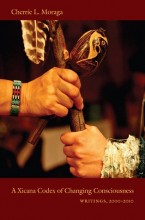The theory of economic conservatism fails us when it fails to consider systematic oppression #chst404
— Michelle Badillo (@MichelleBLMU) April 18, 2012
It’s interesting when the rich are bailed out it’s called strategic but when the poor are it’s a step in the wrong direction #CHST404
— Beatriz Alfaro (@MissBeatriz25) April 18, 2012
I like the idea of reconstructing the American dream but how will the US go about doing that? #CHST404
— Sarah Rosales (@sarah_rosales14) April 18, 2012
It’s really sad how little children are taught consumerism at such a young age. They should be given more responsibilities –#chst404
— Beatriz Alfaro (@MissBeatriz25) April 18, 2012
“we need to reconstruct the American Dream…built upon the idea of reciprocity…instead of alienated individual consumerism.” #chst404
— Michelle Badillo (@MichelleBLMU) April 18, 2012
I think alternative educations should be developed independently, but not implemented independently. If they’re constructed totally indepen-
— Michelle Badillo (@MichelleBLMU) April 18, 2012
-dently then it creates the idea that, for example, Chicano Studies is only for Chicanos, when it is necessary for everyone #chst404
— Michelle Badillo (@MichelleBLMU) April 18, 2012
“choose life work, not a career, one that grows and moves with you as you evolve” these words felt directed … #chst404
— Erika Meza (@erikaem9) April 18, 2012
…specifically towards my thoughts, I’m currently thinking about how to best apply my knowledge after LMU #chst404
— Erika Meza (@erikaem9) April 18, 2012
I know a few people who’s heads would spin at Moraga’s comments on CA’s education and the advantages given to the white minority#CHST404
— Stephanie Troncoso (@steftroncoso) April 18, 2012
I think universities are tools that allows us to expand on our previous knowledge. #CHST404
— Michael Marmolejo (@mmarmol1) April 18, 2012
I’m happy she brought up Howard Zinn, he was definitely an eye opening read in high school historyisaweapon.com/zinnapeopleshi… #CHST404
— Stephanie Troncoso (@steftroncoso) April 18, 2012
That being said, the idea that marriage between 2 people is the only kind of valid relationship needs to end.I’m lost, I guess. #chst404
— Michelle Badillo (@MichelleBLMU) April 18, 2012
